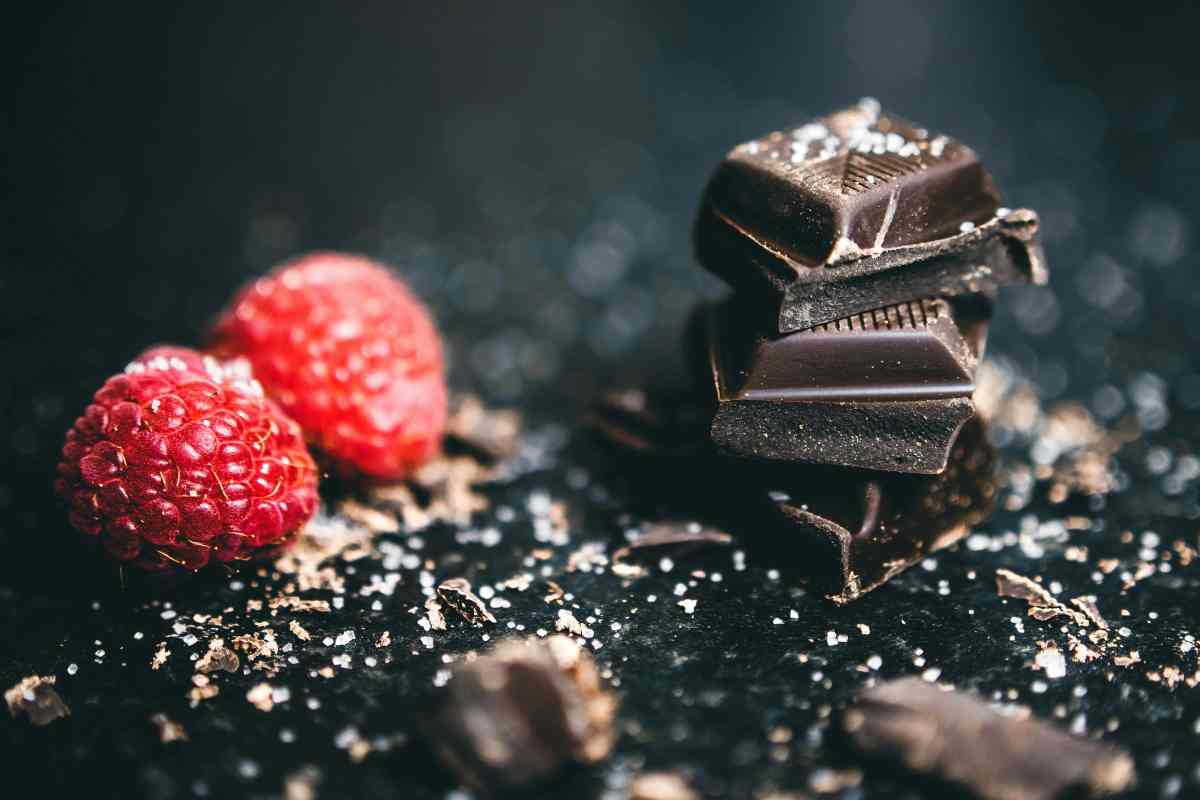
Aphrodisiacs have long since held an allure for many with promises to kindle desire and passion. From chocolate to oysters to herbs, people have long sought the solution for heightened sexual experiences through the consumption of various foods and supplements. Even across cultures, many folklore and traditions weave stories and promises behind these substances. Exactly what defines an aphrodisiac and does it really deliver on its promises?

Aphrodisiacs are substances, typically food, drink or drug, believed to enhance sexual desire or performance. Throughout history, various cultures have explored the use of natural and synthetic compounds in pursuit of a heightened sexual experience. The concept of aphrodisiac is ingrained in human culture and folklore, with substances ranging from exotic herbs to decadent foods which claim to possess mystical or physiological properties that can stimulate the libido and enhance sexual pleasure. While they have been a part of various cultural traditions for centuries, the scientific evidence behind their effectiveness is lacking.
Foods that are often labeled as aphrodisiacs are those believed to tantalize the senses associated with love and desire, including sign, smell, taste, and touch. It’s important to note that eating these foods won’t directly enhance sexual function. Scientifically, no food has been definitively proven to stimulate human sexual organs. It’s the act of eating and the sensory experience of food that may evoke associations with intimacy and pleasure. Here are some foods that are commonly touted as natural aphrodisiacs and what research says about their success or lack of.
These delicious delicacies are often associated with romance and intimacy. Chocolates contain compounds like phenylethylamine and serotonin, which can induce feelings of pleasure and arousal. However, the amounts found in the chocolate are not sufficient enough to have a significant impact on libido. It is more of a mood booster than a sexual stimulus.
Spicy foods, like chili peppers, are often considered aphrodisiacs because they can stimulate physiological responses similar to those experienced during arousal in humans: increased heart rate, induced sweating, and enhanced blood flow. This occurs because of capsaicin, an active compound that gives them that characteristic burning sensation. When consumed, capsaicin interacts with the receptors on the tongue that detect heat, sending signals to the brain that create the sensation of spiciness. Despite this, scientific research supporting the aphrodisiac effects is limited and remains inconclusive.
Oysters are thought to be aphrodisiacs primarily due to their alleged sensual qualities and high zinc content, which is essential for testosterone production and its belief to influence the libido. Despite the longstanding status as symbols of fertility, studies specifically studying their aphrodisiac effects are inconclusive. While some research has been conducted into the potential mechanisms, findings are limited and were often based on animal studies.

Herbal remedies have widely been explored and used across cultures as natural aphrodisiacs, offering a potential solution to improve sexual desire and activity. These remedies are drawn upon ancient practices and indigenous knowledge, but actual scientific research remains ongoing. Despite the inconclusive nature of these studies, the continued interest in traditional herbal remedies demonstrate the ongoing quest for natural solutions to better sexual health.
Saw palmetto, an herbal supplement derived from the fruit of the saw palmetto plant, have been rumored to possess aphrodisiac properties. There are some who believe that it may enhance libido and sexual function but there is no conclusive scientific evidence to support these claims. While some preliminary studies have explored the potential benefits of saw palmetto for improving symptoms of benign prostatic hyperplasia (BPH), a condition that can affect urinary function and sexual health in men, research specifically focused on the aphrodisiac effects are limited. As of now, there are no definitive human studies done that can conclusively demonstrate its efficacy as an aphrodisiac.
Ginkgo biloba, is a popular herbal supplement derived from the leaves of the ginkgo tree, is often touted as a natural remedy for erectile dysfunction and low libido. Advocates claim that this herb can improve blood flow, which could theoretically enhance sexual function. While a study done with gingko suggested improvement in erectile dysfunction, the evidence remains inconclusive. Further analysis had shown that the study demonstrated inadequate methodology, which renders the results inconclusive so more research is needed to confirm any effectiveness.
Ginseng has been used in traditional medicine for centuries and is believed to have various health benefits, including improving sexual function. Its reputation for boosting energy levels, reducing stress, and improving overall vitality are believed to indirectly contribute to enhanced sexual desire and performance. While some studies have shown promising results in terms of increased sexual arousal and satisfaction, more research is needed because the randomized controlled trials had poor methodology and inconsistent dosing.
Maca is considered an aphrodisiac primarily due to its historical use in traditional medicine and anecdotal reports of its effects on sexual function and libido. Native to the Andes mountains of Peru, maca root has been used for centuries by indigenous peoples to enhance fertility, improve stamina, and boost libido. While scientific research on maca’s aphrodisiac properties is still ongoing, some studies suggest that it may have potential benefits for sexual health. Maca contains various bioactive compounds, including macamides and macaenes, which are believed to regulate hormone levels, increase energy, and improve mood—all factors that could contribute to enhanced sexual desire and performance. However, further research is needed to link maca usage with improved sexual function due to the limited number of trials, small sample sizes, and variations in supplementation regimens.
This herb is often marketed as a natural testosterone booster and aphrodisiac. It contains active compounds like saponins which are believed to increase levels of testosterone and improve blood circulation, potentially leading to enhanced desire and performance. While some animal studies have shown potential benefits for sexual function, human studies have yielded mixed results, and more research is needed to determine its effectiveness.

Be cautious when trying natural aphrodisiacs – not only could they be ineffective, they could also have adverse results or side effects. Some supplements may contain hidden ingredients or contaminants that could be toxic, especially for those with certain medical conditions or who are taking medication.
This product is derived from blister beetles, which contains a toxic substance called cantharidin. This can cause severe irritation, inflammation, and damage to the urinary tract and genitalia. Ingesting Spanish fly can lead to symptoms like painful urination, bloody urine, and even kidney failure.
Mad honey comes from the nectar of rhododendron bush and contains a toxin called grayanotoxin. While some cultures have traditionally used mad honey as an aphrodisiac, consuming this can lead to a condition known as mad honey poisoning or grayanotoxin poisoning. Symptoms can include nausea, vomiting, dizziness, weakness, and low blood pressure. In severe cases, it can cause heart rhythm abnormalities, seizures, and even death. These toxic effects are especially dangerous for those who have an underlying health condition or are taking heart or blood pressure medication.
Yohimbe, which comes from the bark of the yohimbe tree that grows in parts of Africa, is often marketed as a natural aphrodisiac and erectile dysfunction remedy. However, it contains an active compound called yohimbine, which can have extreme side effects. Yohimbine works by increasing the blood flow to the genital area and possibly enhancing sexual arousal. This can cause a wide range of adverse effects, including but not limited to increased heart rate, elevated blood pressure, anxiety, insomnia, and dizziness. High dosages or those who are sensitive to yohimbine can experience more severe complications like heart palpitations, cardiac arrhythmias, seizures, and kidney failure. Yohimbe can interact negatively with antidepressants and blood pressure medications, possibly causing death.
As we mentioned above, the effectiveness of most aphrodisiacs is not backed up by scientific evidence. There is something to be said for the ones that increase blood flow, which could help in certain circumstances, but in general, you should expect that the effect of these aphrodisiacs is mostly mental. That said, the placebo effect can be a potent ally here – with sexuality and libido, so much of it is mental that it is possible that just ‘feeling’ like you’re doing something about it will change your perspective and confidence levels.
If you’re experiencing concerns about your libido or sexual function, especially over a long period, it’s best to consult with a healthcare professional. They can provide personalized recommendations and treatment options based on your individual needs and medical history. Also, addressing underlying factors like stress, relationship issues, or medical conditions may be more effective in improving sexual health in the long term rather than relying on natural aphrodisiacs.